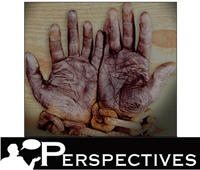What a bomb shell! Imagine the descendants of slaves themselves owning slaves.
USA
Jamaica
Yes it happened in Jamaica too. I have seen the records. Here is one example and there are MANY others:
She got quite a bit of money when slavery was abolished to compensate her for her loss of income:
Three of her children also received compensation for loss of income when slavery was abolished:
They weren't the only ones either. Here is another:
http://www.ucl.ac.uk/lbs/person/view/17047
The Americans are talking about it. For example:
Black Slaveowners: Free Black Slave Masters in South Carolina, 1790-1860
By Larry Koger
Why are Jamaicans not talking about this?
USA
One of the most vexing questions in African-American history is whether free African Americans themselves owned slaves. The short answer to this question, as you might suspect, is yes, of course; some free black people in this country bought and sold other black people, and did so at least since 1654, continuing to do so right through the Civil War. For me, the really fascinating questions about black slave-owning are how many black "masters" were involved, how many slaves did they own and why did they own slaves?
The answers to these questions are complex, and historians have been arguing for some time over whether free blacks purchased family members as slaves in order to protect them -- motivated, on the one hand, by benevolence and philanthropy, as historian Carter G. Woodson put it, or whether, on the other hand, they purchased other black people "as an act of exploitation," primarily to exploit their free labor for profit, just as white slave owners did. The evidence shows that, unfortunately, both things are true. The great African-American historian, John Hope Franklin,states this clearly: "The majority of Negro owners of slaves had some personal interest in their property." But, he admits, "There were instances, however, in which free Negroes had a real economic interest in the institution of slavery and held slaves in order to improve their economic status."
In a fascinating essay reviewing this controversy, R. Halliburton shows that free black people have owned slaves "in each of the thirteen original states and later in every state that countenanced slavery," at least since Anthony Johnson and his wife Mary went to court in Virginia in 1654 to obtain the services of their indentured servant, a black man, John Castor, for life.
And for a time, free black people could even "own" the services of white indentured servants in Virginia as well. Free blacks owned slaves in Boston by 1724 and in Connecticut by 1783; by 1790, 48 black people in Maryland owned 143 slaves. One particularly notorious black Maryland farmer named Nat Butler "regularly purchased and sold Negroes for the Southern trade," Halliburton wrote.
Perhaps the most insidious or desperate attempt to defend the right of black people to own slaves was the statement made on the eve of the Civil War by a group of free people of color in New Orleans, offering their services to the Confederacy, in part because they were fearful for their own enslavement: "The free colored population [native] of Louisiana … own slaves, and they are dearly attached to their native land … and they are ready to shed their blood for her defense. They have no sympathy for abolitionism; no love for the North, but they have plenty for Louisiana … They will fight for her in 1861 as they fought [to defend New Orleans from the British] in 1814-1815."
These guys were, to put it bluntly, opportunists par excellence: As Noah Andre Trudeau and James G. Hollandsworth Jr. explain, once the war broke out, some of these same black men formed 14 companies of a militia composed of 440 men and were organized by the governor in May 1861 into "the Native Guards, Louisiana," swearing to fight to defend the Confederacy. Although given no combat role, the Guards -- reaching a peak of 1,000 volunteers -- became the first Civil War unit to appoint black officers.
The answers to these questions are complex, and historians have been arguing for some time over whether free blacks purchased family members as slaves in order to protect them -- motivated, on the one hand, by benevolence and philanthropy, as historian Carter G. Woodson put it, or whether, on the other hand, they purchased other black people "as an act of exploitation," primarily to exploit their free labor for profit, just as white slave owners did. The evidence shows that, unfortunately, both things are true. The great African-American historian, John Hope Franklin,states this clearly: "The majority of Negro owners of slaves had some personal interest in their property." But, he admits, "There were instances, however, in which free Negroes had a real economic interest in the institution of slavery and held slaves in order to improve their economic status."
In a fascinating essay reviewing this controversy, R. Halliburton shows that free black people have owned slaves "in each of the thirteen original states and later in every state that countenanced slavery," at least since Anthony Johnson and his wife Mary went to court in Virginia in 1654 to obtain the services of their indentured servant, a black man, John Castor, for life.
And for a time, free black people could even "own" the services of white indentured servants in Virginia as well. Free blacks owned slaves in Boston by 1724 and in Connecticut by 1783; by 1790, 48 black people in Maryland owned 143 slaves. One particularly notorious black Maryland farmer named Nat Butler "regularly purchased and sold Negroes for the Southern trade," Halliburton wrote.
Perhaps the most insidious or desperate attempt to defend the right of black people to own slaves was the statement made on the eve of the Civil War by a group of free people of color in New Orleans, offering their services to the Confederacy, in part because they were fearful for their own enslavement: "The free colored population [native] of Louisiana … own slaves, and they are dearly attached to their native land … and they are ready to shed their blood for her defense. They have no sympathy for abolitionism; no love for the North, but they have plenty for Louisiana … They will fight for her in 1861 as they fought [to defend New Orleans from the British] in 1814-1815."
These guys were, to put it bluntly, opportunists par excellence: As Noah Andre Trudeau and James G. Hollandsworth Jr. explain, once the war broke out, some of these same black men formed 14 companies of a militia composed of 440 men and were organized by the governor in May 1861 into "the Native Guards, Louisiana," swearing to fight to defend the Confederacy. Although given no combat role, the Guards -- reaching a peak of 1,000 volunteers -- became the first Civil War unit to appoint black officers.
Jamaica
Yes it happened in Jamaica too. I have seen the records. Here is one example and there are MANY others:
Margaret Dunbar was recorded as "a free Quadroon woman".
| Margaret Dunbar AWARDEE Jamaica Kingston 1027 £122 8S 6D [6 Enslaved] AWARDEE Jamaica Kingston 1028 £380 16S 9D [19 Enslaved] |
| Margaret Dunbar AWARDEE Jamaica Westmoreland 236 £145 15S 3D [8 Enslaved] |
Jane Robertson, Mary Ann Robertson and Gilbert Robertson
They weren't the only ones either. Here is another:
http://www.ucl.ac.uk/lbs/person/view/17047
The Americans are talking about it. For example:
Black Slaveowners: Free Black Slave Masters in South Carolina, 1790-1860
By Larry Koger
Why are Jamaicans not talking about this?







Comment